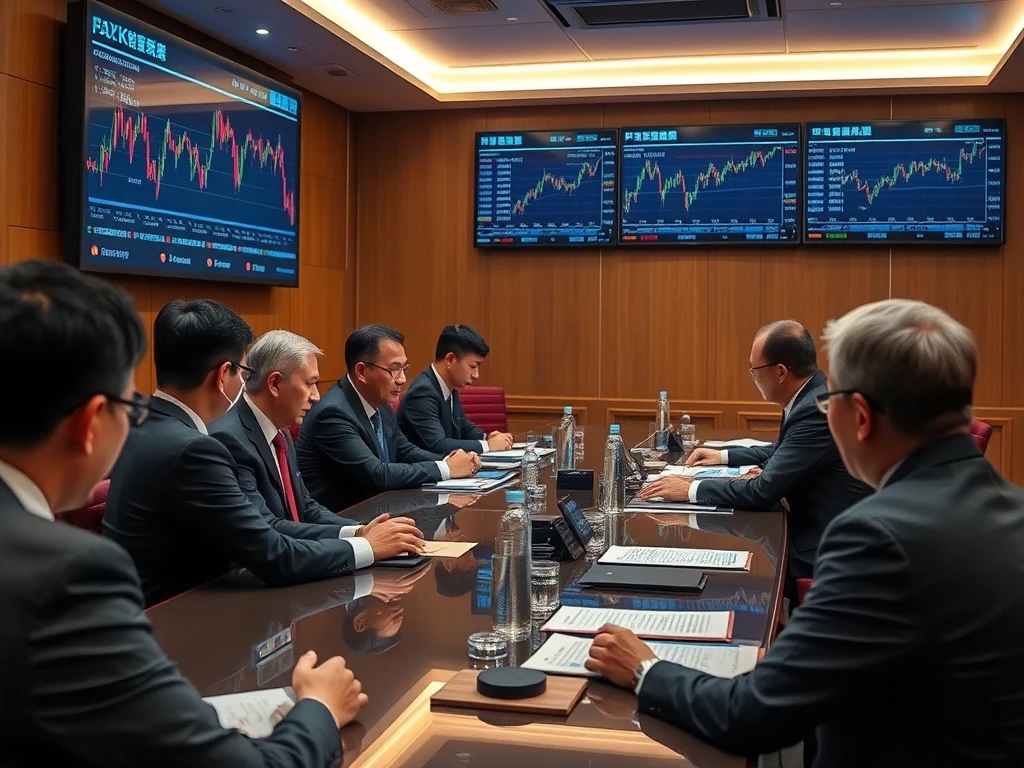South Korea’s financial authorities have taken a decisive stand against cryptocurrency market risks by implementing an immediate suspension of all crypto lending activities. This bold regulatory move directly addresses growing concerns about market manipulation and investor protection in the rapidly evolving digital asset space.
Understanding the Crypto Lending Ban
The Financial Services Commission (FSC) announced the comprehensive suspension of crypto asset lending operations across all financial institutions. Consequently, companies must immediately cease these activities and submit compliance plans within a specified timeframe. The commission cited several critical reasons for this intervention:
- Market manipulation concerns in cryptocurrency trading
- Excessive volatility amplified by lending practices
- Inadequate investor protection mechanisms
- Systemic financial risks from unregulated leverage
Global Regulatory Context for Crypto Lending
South Korea’s action aligns with international regulatory trends. Similarly, United States and European Union authorities have increased scrutiny on crypto lending practices. Moreover, this coordinated approach reflects growing global consensus about digital asset regulation. However, each region implements measures according to local market conditions and risk assessments.
Industry Reactions to Lending Suspension
Market participants expressed mixed reactions to the crypto lending ban. Some industry leaders praised the government’s proactive stance on investor protection. Conversely, exchange operators warned about potential liquidity impacts. Additionally, traders expressed concerns about limited risk management tools. Nevertheless, most stakeholders acknowledge the need for balanced regulation.
Future Regulatory Framework Development
The FSC established a working group to study crypto lending models comprehensively. This team comprises financial experts and industry representatives. Their mandate includes assessing risks and proposing alternative frameworks. Furthermore, they will evaluate international best practices. Ultimately, they aim to develop tailored regulations that balance innovation with necessary safeguards.
Regional Market Implications
South Korea’s decision may influence neighboring markets significantly. Japan and China monitor these developments closely. Additionally, international regulators study this approach for potential implementation. Asian markets particularly watch how this affects trading volumes and investor behavior. Meanwhile, global cryptocurrency markets observe these regional developments carefully.
FAQs
What does the crypto lending ban mean for existing loans?
Existing crypto loans must be resolved according to FSC guidelines. Borrowers and lenders should contact their service providers immediately.
How long will the crypto lending suspension last?
The FSC hasn’t specified a duration. The working group’s assessment will determine whether this becomes permanent or temporary.
Can investors still access margin trading services?
Margin trading using traditional financial instruments remains available. However, crypto-based margin trading through lending services is suspended.
Will this affect cryptocurrency prices in South Korea?
Short-term price volatility is possible due to reduced liquidity. Long-term effects depend on alternative products development.
Are other countries considering similar crypto lending restrictions?
Multiple jurisdictions evaluate crypto lending regulations. South Korea’s approach provides valuable case study data.
How can investors protect themselves during this transition?
Investors should diversify portfolios, understand new regulations, and use only compliant platforms for cryptocurrency activities.


